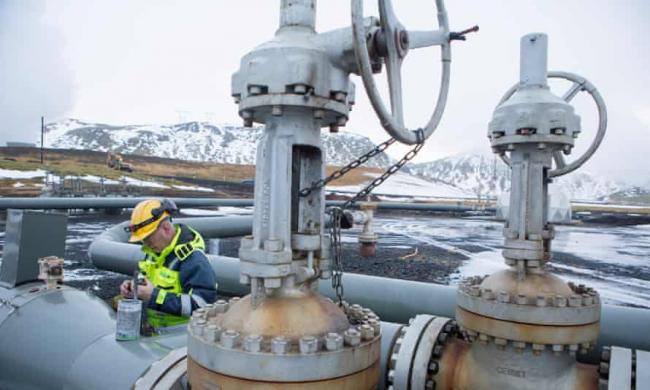Articles Menu

Sept. 9, 2021
The world’s largest plant designed to suck carbon dioxide out of the air and turn it into rock has started running in Iceland, the companies behind the project – Switzerland’s Climeworks and Iceland’s Carbfix – said on Wednesday.
The plant, named Orca after the Icelandic word “orka” meaning “energy”, consists of four units, each made up of two metal boxes that look like shipping containers.
Constructed by Climeworks, when operating at capacity the plant will draw 4,000 tonnes of carbon dioxide out of the air every year, the companies say.
According to the US Environmental Protection Agency, that equates to the emissions from about 870 cars. The plant cost between US$10 and 15m to build, Bloomberg reported.
To collect the carbon dioxide, the plant uses fans to draw air into a collector, which has a filter material inside. Once the filter material is filled with CO2, the collector is closed and the temperature is raised to release the CO2 from the material, after which the highly concentrated gas can be collected.
Then, Carbfix’s process mixes the CO2 with water and injects it at a depth of 1,000 metres into the nearby basalt rock where it is mineralised. Carbfix says the CO2-water mixture turns to stone in about two years, and hydride of sulphur (HS2), within four months.
Proponents of so-called carbon capture and storage believe these technologies can become a major tool in the fight against climate change.
Critics however argue that the technology is still prohibitively expensive and might take decades to operate at scale.
[Top photo: A worker on a Carbfix carbon injection well in Iceland in 2017. The company is involved in the new Orca plant designed to draw carbon dioxide out of the air and store it as rock. Photograph: Christian Science Monitor/Getty Images]